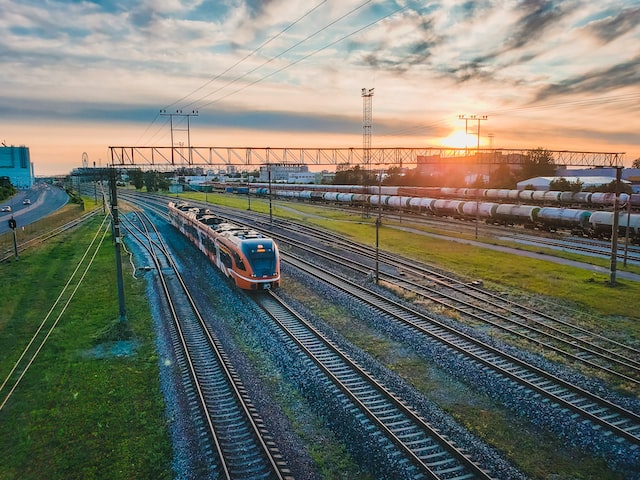California: Project Plan for a High-Speed Rail

California will construct a high-speed train from Los Angeles to Las Vegas, a project worth $10 billion. The high-speed rail system will be constructed by the private railway company Brightline and will have a total length of 218 miles (351 km) with the availability to carry 1,200 passengers at speeds reaching 200 mph (322 km/h).
Additionally, as the trains will be powered by electricity, the carbon dioxide emissions will be decreased by 400,000 tons. This would reduce the journey length from four hours down to around an hour. Additionally, the project will create 35,000 jobs, while operations are expected to begin in 2027.
As said by the CEO of Brightline Holdings, Mike Reininger, “As the most shovel-ready high-speed rail project in the United States, we are one step closer to leveling the playing field against transit and infrastructure projects around the world, and we are proud to be using America’s most skilled workers to get there.”
According to the information, expected are 12 million one-way trips annually at full operation. This is a significant share of the estimated 50 million one-way trips per year, which are made on this route, 85% of which are using a car or bus. Furthermore, expected are train departures every 45 minutes. The trains will feature free Wi-Fi, a broad selection of food and drinks, and checked luggage. According to the company, the number of passenger vehicles driving between these two cities will be reduced by 3 million per year.
The company already operates such high-speed trains in Florida on the route Miami-Palm Beach. California is developing a high-speed rail system that has a total cost of $100 billion – a project introduced back in 2019 that includes a total of 500 miles (805 km).
Connecting California’s Northern and Southern regions with a bullet train is a project originally approved 15 years ago. Brightline is the only private railway company in the US, which provides modern and ecologically sustainable passenger rail service.

 Tech Steel & Materials
Tech Steel & Materials